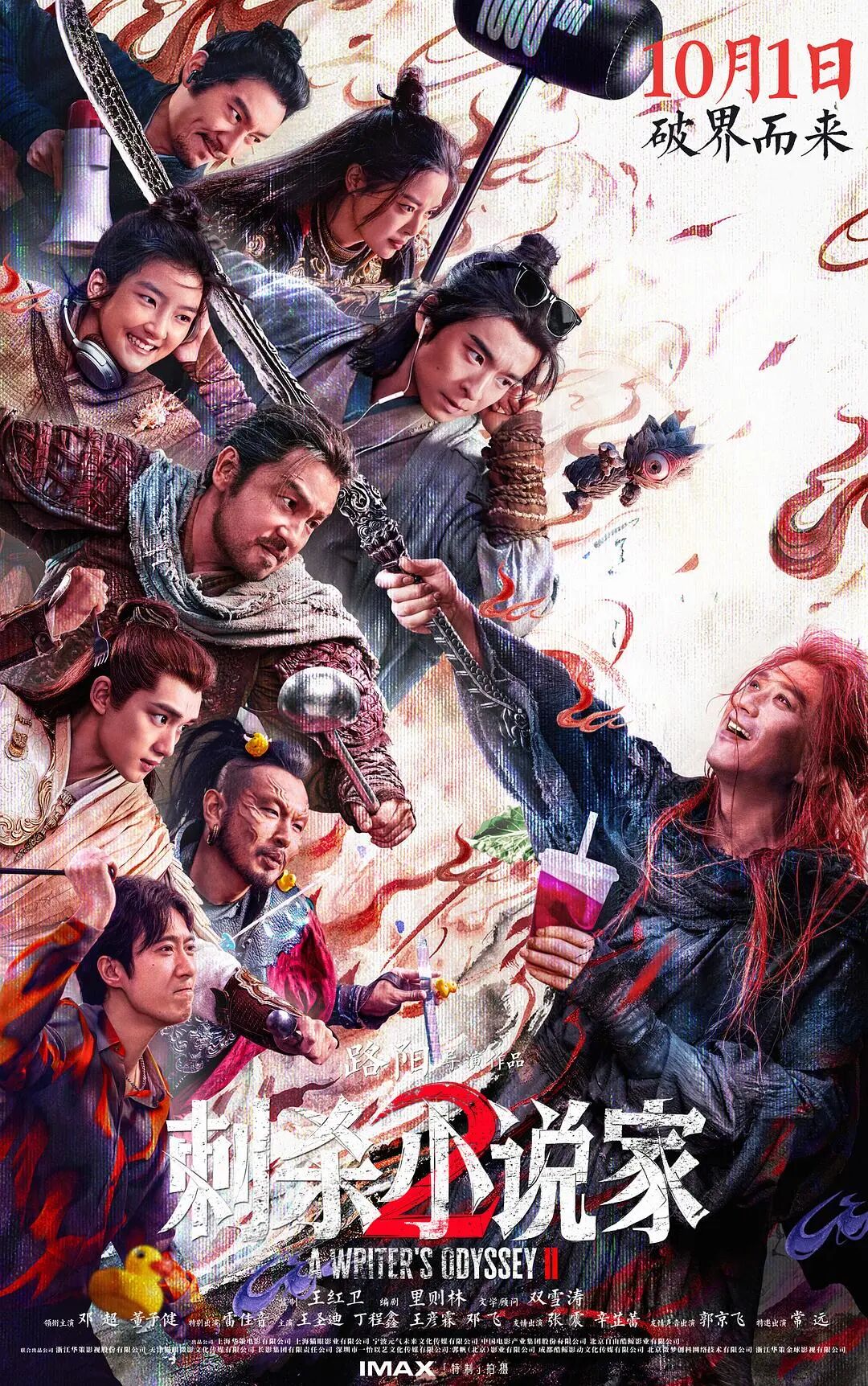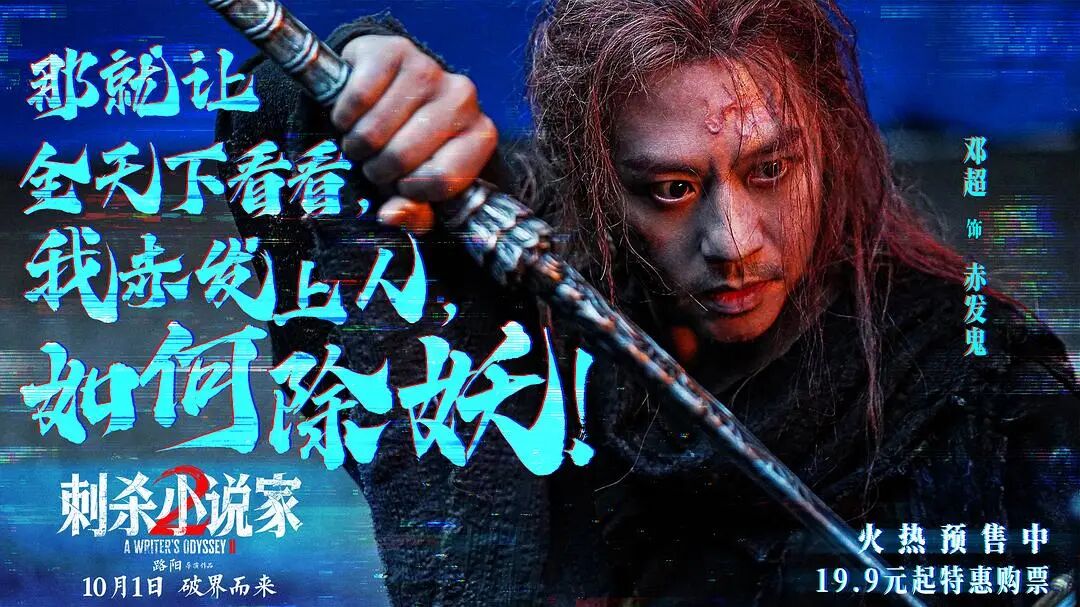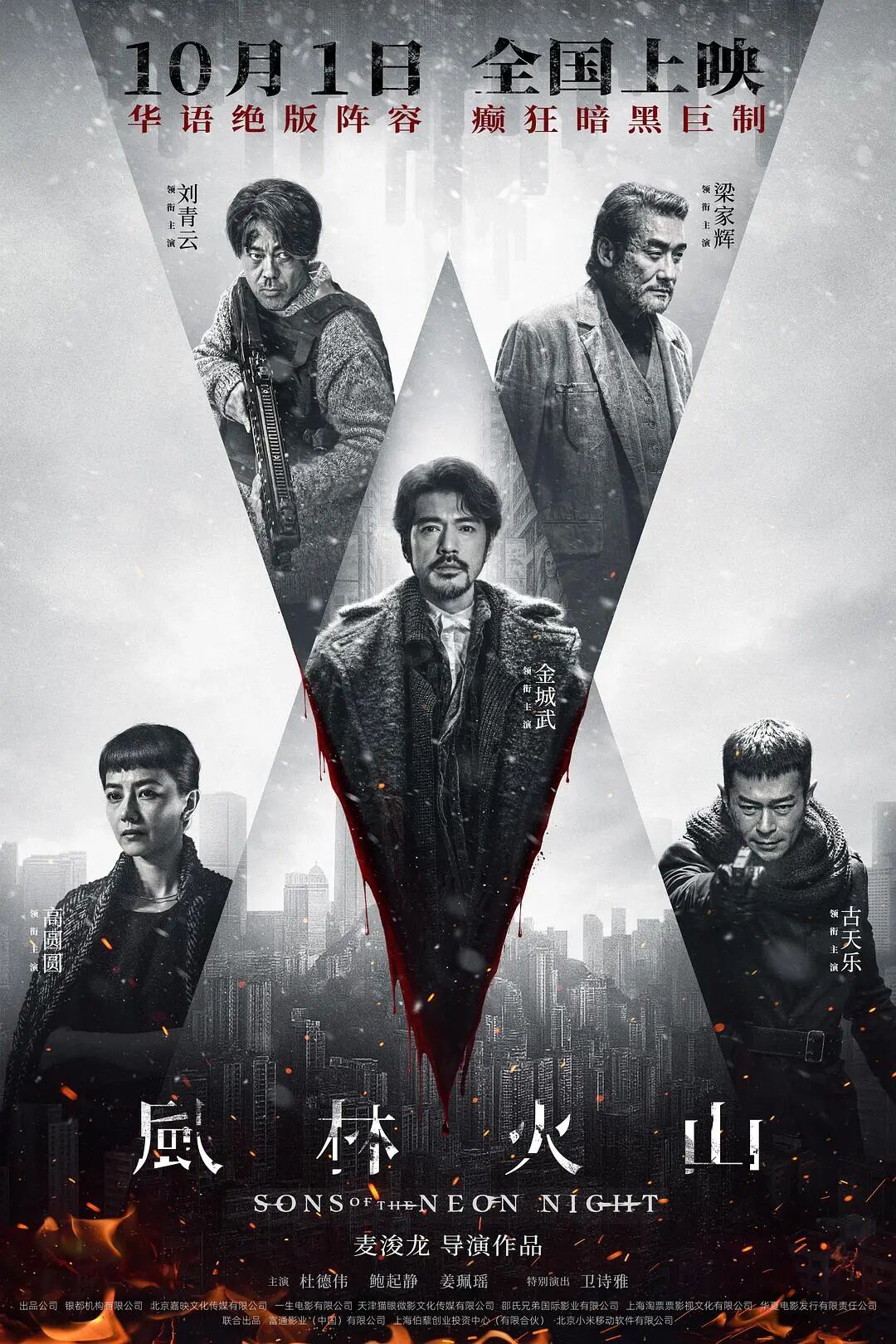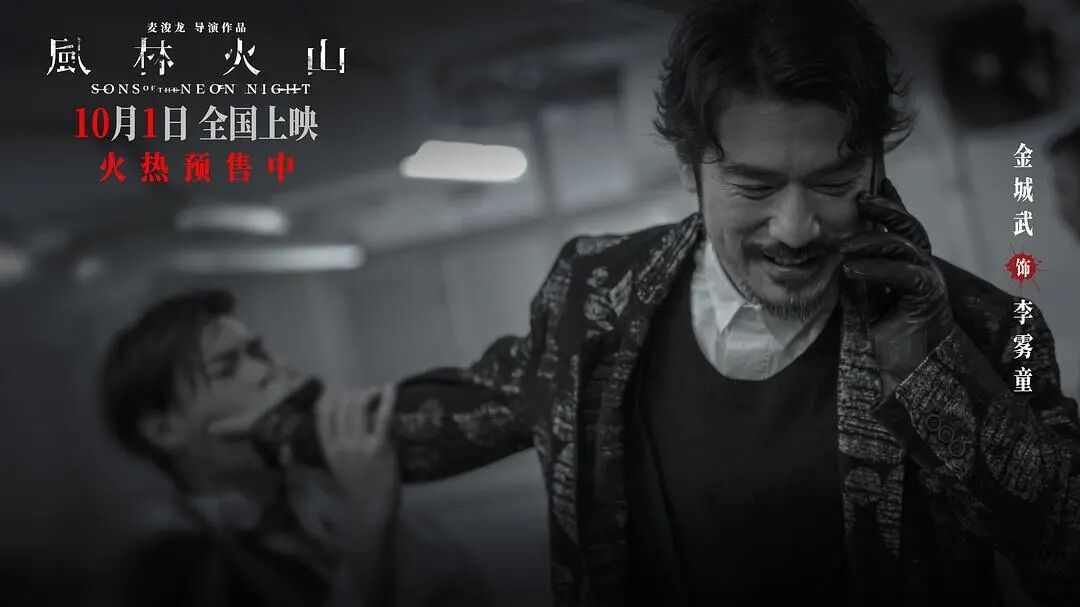BJIFF National Day Film Season Special Recommendation: An Action Feast, Where Imagination Meets Hardcore Spectacle
Just two days into the long holiday, the competition among over ten new National Day releases is fierce, and the public's enthusiasm for moviegoing is beginning to show. Today, the "BJIFF National Day Film Season Special Recommendation" column introduces two highly anticipated action-fantasy blockbusters: A Writer's Odyssey II and Sons of the Neon Night.
A Writer's Odyssey, adapted from Shuang Xuetao's novel of the same title, was released during the 2021 Spring Festival season. It received six nominations at the 34th China Film Golden Rooster Awards, including for Best Director, Cinematography, Art Direction, Editing, Music and Sound Recording, and also won the Outstanding Cinematography Award at the 19th China Huabiao Film Awards. The film grossed 1.035 billion yuan at the box office, ranking 11th in the total box office of Chinese films in 2021. Four years later, A Writer’s Odyssey II returns powerfully. Building upon the worldview of its predecessor, it embarks on a new chapter, once again exploring the boundary where reality and fantasy blend.

Poster of A Writer’s Odyssey II
The story is set six years after Kongwen (played by Dong Zijian) and the Red Armored Warrior (played by Lei Jiayin) joined forces to defeat the Red-Haired Demon and successfully retrieved Little Orange. Novelist Lu Kongwen (played by Dong Zijian) is falsely accused of plagiarism after Cicada (played by Chang Yuan) steals his work, God Killing. Unable to put this matter behind him, and prompted by Cicada's "apology" and suggestion, Lu Kongwen decides to pick up his pen once more to write God Killing 2. After the death of the Red-Haired Demon, the Cloud City is left leaderless. However, Demon-Slaying Sword Kongwen, the Red Armored Warrior Tong Hu, his daughter Little Orange, and the one-eyed monster Hei Long have no interest in competing for the city's leadership. At this moment, the Red-Haired Demon (played by Deng Chao) reappears in human form and reveals to Kongwen a future in which everyone is destined to die. To protect his companions, Kongwen resolutely decides to follow the Red-Haired Demon to meet the "God" and rewrite their destiny.
As a sequel, A Writer’s Odyssey II has achieved a qualitative leap in visual effects. The Red-haired Demon's "Gluttony Art" Thunderbolt's (played by Wang Yanlin) "Stone Armor Art", Walker's (played by Ding Chengxin) "Invisibility Art", and Cloud Dragon's (played by Xin Zhilei) "Resurrection Art" all showcase bizarrely magnificent Eastern imagination. The design of the Cloud City's grand scenes and the thrilling confrontations in fight sequences, enhanced by comprehensively upgraded special effects, make the audio-visual experience even more stunning. Especially when the Red-haired Demon performs "Gluttony Art" to devour others, even though Guan Ning (played by Lei Jiayin) jokingly remarks that it resembles a "shampoo commercial", this very comment serves as proof of the scene's exquisite level of detail.

The Red-Haired Demon (played by Deng Chao) in A Writer’s Odyssey II
At the same time, A Writer’s Odyssey II incorporates comedic elements of nonsensical humor. Whether it is Novelist Lu Kongwen confronting the Red-Haired Demon in the Cloud City by composing his story's plot in real-time, or Lu Kongwen joining forces with Kongwen to utilize special abilities to open a spacetime portal, repeatedly triggering time-travel incidents, these elements infuse the film with a unique sense of humor and comic relief.
If A Writer’s Odyssey II represents the technological cutting edge of domestic Chinese cinema, then Sons of the Neon Night embodies the meticulous craftsmanship of Hong Kong filmmakers. Directed by Juno Mak, this film brings together a star-studded cast including Takeshi Kaneshiro, Sean Lau, Tony Leung Ka-fai, Louis Koo, and Gao Yuanyuan. The film has been repeatedly postponed since its completion in 2018, leaving fans waiting eight years.

Poster of Sons of the Neon Night
The story takes place in Hong Kong in 1994, on a snowy night, when gunmen wearing burlap hoods shoot everyone randomly in the middle of the crowded Causeway Bay. The blood spatter from the shootout smears the falling snowflakes. Late at night, a mentally unstable police detective, strapped with explosives, asks if he still has a chance to "reset the game" before decisively detonating a hospital building. Behind these relentless violent incidents lies a hell on earth fueled by rampant drug abuse. Will those attempting to "cleanse" their pasts succeed in their goals, or are they ultimately doomed to meet a fatal end?
Sons of the Neon Night is far from a conventional police-versus-gangster drug bust film. The narrative rejects simplistic moral dichotomies, with each character brimming with complexity. The police officer Wong Chi Tat (played by Sean Lau) secretly hoards drugs for profit, yet now plans to emigrate overseas with his daughter. The veteran cop Dik Man-Kit (played by Tony Leung Ka-fai), who can only fall asleep by listening to an audio recording of his wife's murder, also appears to harbor dark secrets. Meanwhile, the Qiaoyan Group, long involved in covert drug trafficking, is now attempting to pivot into a pharmaceutical corporation under its heir Lee Mo-tung (played by Takeshi Kaneshiro) and his girlfriend, psychiatrist Lau Sze Yan (played by Gao Yuanyuan). Their rationale: compared to illegal narcotics, painkillers are not only more addictive but also entirely legal. However, older-generation members and the elder brother, Lee Man-dik (played by Alex To), express discontent with this transition. Beyond them, the city is also home to a network of figures known as "Cleaners", including Ching Man-Sing (played by Louis Koo), Little Yip (played by Jiang Peiyao), Can Tou (played by Wyman Wong), Uncle En (played by Lowell Lo), and Madam Huan (played by Paw Hee Ching). While they maintain a facade of camaraderie, their relationships are fundamentally governed by the distribution of interests and underlying rivalry.
Director Juno Mak's pursuit of cinematic aesthetics reaches its extreme. The director, who first gained acclaim with Rigor Mortis, continues to explore his unique dark aesthetic in Sons of the Neon Night, with meticulously designed visual composition and editing that sustains a consistently cold, sharp tone. Adding profound depth to the film's atmosphere is the partial score created by the late Japanese music maestro, Ryuichi Sakamoto.

Lee Mo-tung (played by Takeshi Kaneshiro) in Sons of the Neon Night
The phrase "Wind, Forest, Fire, Mountain" (the Chinese name for Sons of the Neon Night) comes from the Spring and Autumn Period military classic The Art of War, Chapter "Military Maneuvers". The original text is: "Let your rapidity be that of the wind, your compactness that of the forest. In raiding and plundering be like fire, in immovability like a mountain. Let your plans be dark and impenetrable as night, and when you move, fall like a thunderbolt." In the film, each of these four words corresponds to a distinct visual and thematic motif, leaving the audience to discover their specific interpretations as they watch.
This National Day holiday, whether you want to see the visual spectacle of A Writer’s Odyssey II, immerse yourself in the profound exploration of human nature in Sons of the Neon Night, or explore other genres, the silver screen has something for everyone's taste. A Writer’s Odyssey II showcases the rapid advancement of China's film industry through its stunning visual effects, while Sons of the Neon Night epitomizes the enduring appeal of Hong Kong cinema with its deep narrative and exquisite cinematic aesthetics. Seize the holiday as an opportunity to step into a cinema, select a film that speaks to you, and lose yourself in the captivating world of light and shadow for a truly memorable experience.

